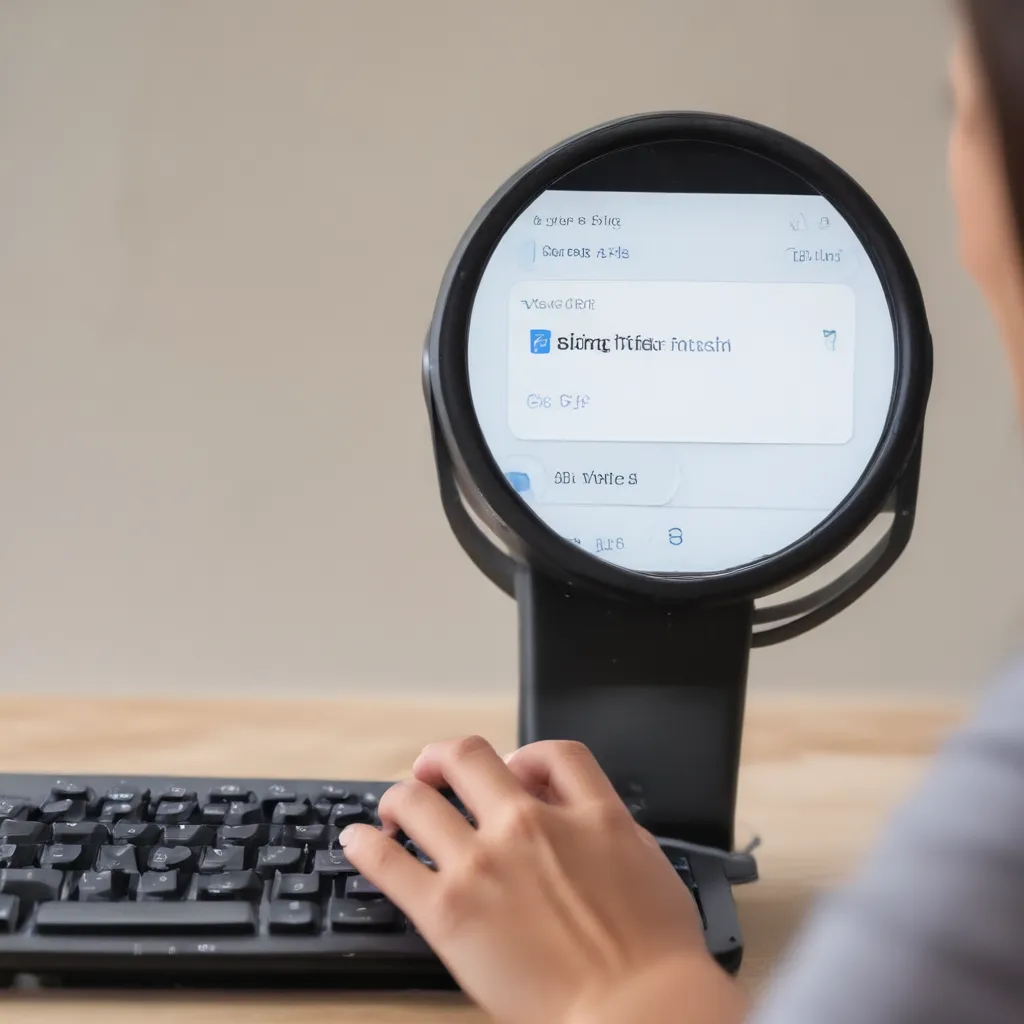
Voice Search Moves Typing to Talking
The Rise of Voice Search: From Novelty to Necessity
I still remember the first time I tried voice search on my smartphone. It was like something straight out of a sci-fi movie – just speaking into my device and having it magically understand and respond to my queries. At first, it felt a bit gimmicky, like a fun party trick. But over the past few years, voice search has quickly evolved from a novelty to an essential part of how we interact with technology.
As voice recognition technology has improved, voice search has become increasingly accurate and reliable. No longer do we have to tediously type out every search query – we can simply speak our minds and let our devices do the rest. It’s a quantum leap forward in user experience, allowing us to get information and complete tasks faster than ever before.
But the rise of voice search hasn’t just made our lives more convenient. It’s also fundamentally changing the way we think about and interact with technology. Instead of primarily relying on a keyboard and mouse, we’re now talking to our devices as if they were another person. In a way, it’s bringing us one step closer to the vision of truly intelligent, conversational AI.
The Evolving Ecosystem of Voice Search
As voice search has become more prevalent, we’ve seen a whole ecosystem of supporting technologies and devices spring up around it. Smart speakers like the Amazon Echo and Google Home have become ubiquitous in many households, allowing us to control our smart home features, look up information, and even play music all with the power of our voice.
But it’s not just in the home where voice search is making waves. Voice typing is also becoming a staple on our laptops and desktops, letting us dictate documents and emails without ever touching the keyboard. And in our cars, voice-activated infotainment systems are making it safer and more convenient to access information and services on the go.
The implications of this voice search revolution are massive. As more and more of our daily interactions with technology shift from typing to talking, it’s fundamentally changing the way we search for, consume, and interact with information. Businesses and marketers need to adapt accordingly, optimizing their content and services for this new voice-first world.
The Future of Voice Search: Conversational AI and Beyond
But the rise of voice search is just the beginning. The real excitement lies in where this technology is headed next. With advancements in natural language processing and machine learning, we’re on the cusp of truly conversational AI – digital assistants that can understand context, carry on fluid dialogues, and even learn and grow alongside us.
Imagine being able to have a seamless, natural conversation with your device, asking follow-up questions, clarifying points, and diving deeper into topics that interest you. The team at MCR SEO believes this is the future we’re rapidly hurtling towards – a world where typing takes a backseat to talking, and our technological companions become true partners in exploration and discovery.
Of course, there are still plenty of challenges to overcome. Issues around privacy, security, and bias will need to be carefully navigated. But the potential benefits are simply staggering. Voice search isn’t just about making our lives more convenient – it has the power to fundamentally reshape how we interact with information and technology, opening up new realms of possibility.
So as you go about your day, keep an eye (and an ear) out for the steady march of voice search. It may start as a simple query or command, but who knows where the conversation might lead? The future is coming, and it’s talking.



























